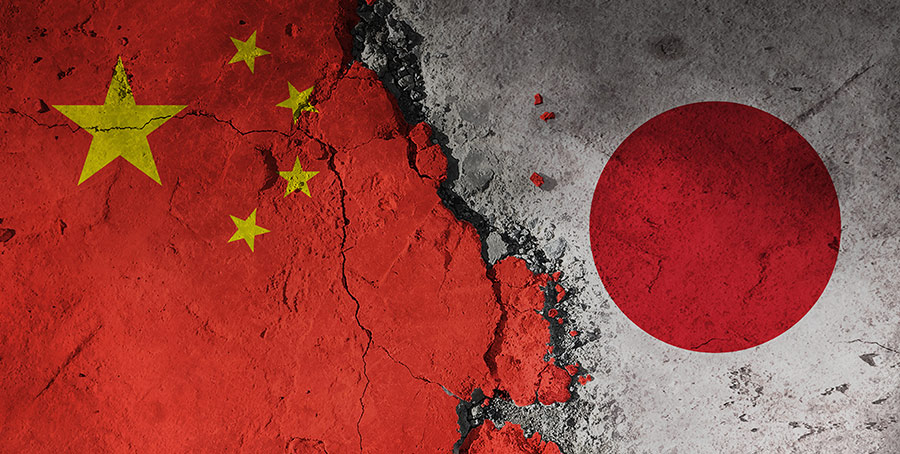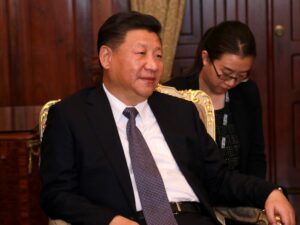Since the release of treated water from the Fukushima Daiichi Nuclear Power Plant, the Chinese government has placed an embargo on Japanese fishery products and is fiercely criticizing Japan. In the midst of this situation, there has been a series of phone calls by Chinese people harassing Japan, and tours to Japan have been canceled, with widespread repercussions. Numerous videos have been posted on Chinese SNS showing unsolicited phone calls to restaurants and other establishments in Fukushima and Tokyo.
One caller said, “Hello, I want to ask you why you are dumping contaminated water into the ocean. I don’t know what you are talking about. I’m asking why you dump contaminated water into the ocean. If it’s clean, drink it yourself. Do you speak English?”
He said, “Hello. How are you spending your time? Did you drink the contaminated water yesterday? Did it taste good? Are you still alive and well?”
(*From a video posted on a Chinese social networking site)
It appears that the callers are using a machine translation voice-reading function to make the calls. A spokesperson for the Chinese Ministry of Foreign Affairs said on March 28, “We are not aware of these disturbing acts. Our criticism of and opposition to the Japanese government is representative in the international community. We ask the Japanese side to think carefully about this,” and the government has not indicated a policy for responding to the situation.
We spoke with Shi Ping, a critic well versed in Chinese political, economic, and diplomatic issues, about the background to China’s growing opposition to the release of treated water.
What do you make of the Chinese government’s vehement condemnation of Japan and the behavior of the Chinese people?
Since the release of the treated water on March 24, the Chinese government has been vehemently opposing Japan’s decision to treat it as contaminated water. The Huangyue Times, a leading newspaper affiliated with the Communist Party of China, has been editorializing daily in criticism of Japan, and the government’s incitement has led some Chinese citizens to take extreme action.
However, one thing that should be noted in this case is that seven days have passed since the release of the treated water, and there have been no mass demonstrations.
━What does that mean?
The Chinese government and media are exaggerating the issue and encouraging people to attack Japan, but the people’s reaction has not been very enthusiastic. This criticism is unreasonable from the start. While the International Atomic Energy Agency (IAEA) has announced the safety of the treated water and both the Japanese and international organizations have provided scientific evidence, the Chinese government has provided no evidence. What is even worse for China is the movement of Pacific Rim countries. The Chinese government is advertising that the treated water will pollute the entire Pacific Ocean, but countries and regions other than China, such as the United States, Australia, and Taiwan, are not protesting, and in fact, China’s own isolation is conspicuous. Then again, many Chinese citizens are not stupid, so they ask, ‘Why aren’t other countries protesting?’ they wonder. If the water is really contaminated, then it doesn’t add up to why Japan is polluting Japan’s oceans. Some people take the government’s information at face value, but many Chinese are whitewashed by the government’s lies.”
Nonfiction writer Satoshi Ishido commented on this issue, “I also take the position that the Chinese side’s claim is quite unreasonable in this case. It is the Chinese side that has not responded to Japan’s call for discussions based on scientific arguments. Other countries have responded and are sharing information. The release of treated water this time has also been checked by the IAEA. There is no scientific point of contention at all. The scientific issues have already been settled, but China is repeating claims that are quite unreasonable,” he pointed out.
How long will China’s total embargo of Japanese marine products last?
The Xi Jinping administration, once it raises its fist, is not likely to lower it. The embargo will continue, but China itself will be in trouble. The Chinese government has embargoed Japanese seafood because it is contaminated, but since the oceans are connected, by that logic, fish caught in China cannot be eaten either. In China, fish caught in waters near China are already being shunned because of the government’s embargo. If the embargo is prolonged, not only Japan but China itself will suffer a major blow in the future.
China will also use the embargo as a bargaining chip for lifting Japan’s restrictions on semiconductor exports to China. However, I don’t think they will lift the embargo for some time to come.
Is the fact that China’s economy is now in a very difficult situation having an impact?
The Chinese bubble is in the process of bursting, and the most critical issue for the Chinese government is the unemployment of young people. According to figures released by China’s National Bureau of Statistics, the unemployment rate for young people between the ages of 16 and 24 is an unprecedented 21.3%, and although they stopped releasing this data in July, a survey by a vice professor at Peking University showed that the rate “is already likely to exceed 46%. The government may be trying to channel Japan’s growing discontent, which is on the verge of exploding domestically, toward the Japanese.
What do you make of the sharp decline in foreign direct investment since April?
The Chinese economy is suffering from a lack of consumption, and while exports to other countries are the main source of economic growth, they were down 14.5% in July from the same month last year. Companies have already stopped production and capital investment and are losing their appetite.”
━How should Japan respond?
In response to China’s embargo, Mr. Ishido said, “In the short term, China’s embargo is a good thing.
In the short term, there is no reason for China to stop the embargo. When continuing negotiations in the future, it will be difficult to use diplomatic channels, so I think it is better to appeal to the international community in a straightforward manner for our legal legitimacy. Also, since there will be a surplus of goods in Japan that were originally supposed to be exported to China, I hope that they will reduce their dependence on China by providing support for these goods, developing new sales channels, and consuming these goods domestically.”
(From “ABEMA Hills”)







